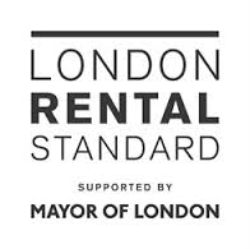Posts

The A to Z of London Landlord Laws: Guide for Property Owners
In the bustling and diverse landscape of London's real estate market, navigating the intricate web of landlord laws is crucial for property owners. Understanding the legal framework ensures a harmonious relationship between landlords and tenants,…

London Landlord's Success with Rent-Guaranteed Program
Embarking on the journey of a London landlord is akin to navigating a complex chessboard, with each move influencing the outcome of the game. Amid challenges posed by market uncertainties, tenant dynamics, and financial intricacies, the concept…

London's Guaranteed Rent Growth: What Landlords Need to Know
In the dynamic landscape of London's property market, guaranteed rent has gained substantial traction among landlords. This blog aims to shed light on the significant growth of guaranteed rent programs in London and equip landlords with the…

Protecting Your London Rental Income: A Strategic Guide
How To Protect Your London Rental Income
In the bustling realm of London's property market, protecting your London rental income is a critical aspect of successful property management. As a property owner, navigating the challenges of the dynamic…

Tenancy: Online or Face-to-Face? What Suits You?
Tenancy: Online or Face-to-Face? What Suits You?
As a landlord navigating the dynamic landscape of the London property market, the decisions you make regarding tenancy arrangements can significantly impact your leasing process and the overall…

Elevate London Rentals EPC: Achieve 60% Energy Savings
Elevate London Rentals EPC
In the dynamic landscape of London property management, where sustainability meets sophistication, elevating your Energy Performance Certificate (EPC) to a grade of C or above is a strategic move that transcends regulatory…

A Complete Guide to Prevent Burst Pipes in Rental Properties
As a landlord overseeing rental accommodations, one of the critical aspects of property management is safeguarding against the havoc caused by burst pipes in rental properties. Burst pipes can lead to significant damage, inconveniences for tenants,…

Your Step-by-Step HMO Licence Guide: Unlocking London Living
London, a city teeming with life, culture, and opportunities, has become a hub for individuals seeking shared living spaces. House in Multiple Occupation (HMO) properties, in particular, offer an affordable and vibrant living experience. If…

Securing HMO Licensing: An In-Depth Guide for Success
With the increasing demand for affordable housing, House in Multiple Occupation (HMO) properties in property management are gaining popularity. HMOs, which stands for "House in Multiple Occupation," are rental properties shared by three or more…

Comprehending HMOs in the Field of Property Management
Understanding and Managing HMOs: A Comprehensive Guide
As the demand for affordable housing continues to rise, HMOs in the field of property management have become increasingly popular. HMOs are rental properties shared by three or…






